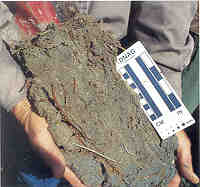There are many different kinds of wetlands and they all perform ecological functions, and produce certain goods and services that are valuable to humans. The most important functions wetlands perform on the Texas Gulf Coast are:
- Water Quality: Wetlands are one of nature’s most efficient water filters. Wetland plants and soils clean the water before it goes into groundwater or into rivers.
- Nurseries: Coastal near-shore wetlands serve as important nurseries for fish, crab, and other shellfish. The total economic impact of commercial fishing at the wholesale level is more than $400 million annually, employing about 30,000 coastal residents, all dependent on the wetlands! The total economic impact of saltwater sport fishing in Texas is almost $2 billion annually, employing about 25,000 coastal residents.
- Wildlife Habitat: Our coastal plain wetlands are home to many different kinds of animals. Birds from all over North America use Texas coastal habitats during migration and many species spend the winter on the coast.
- Flood buffers: Wetlands reduce the severity of floods by acting as natural detention areas. Destruction of many wetlands has made downstream flooding much worse.
- Erosion control: Nearshore wetlands act as buffers to reduce shoreline erosion and stabilize banks.
- Recreation: In addition to fishing, hunting and bird-watching are also economically important. Wildlife watching is the fastest growing segment of the tourism industry. In 1996, 3.8 million U.S. residents spent $1.2 billion watching wildlife in Texas.

